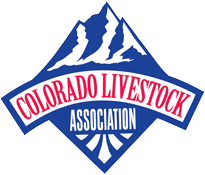Over the past few years, many voices from Colorado’s farming and ranching communities have begun exploring ways that soil health practices can be recognized, incentivized, and promoted at a statewide level. Several states, including New Mexico, Nebraska, and Utah, have passed and implemented policies to promote the use of soil health practices.
Colorado, however, does not yet have such a program at the state-level. Colorado’s General Assembly should establish a voluntary, incentives-based soil health program within the Colorado Department of Agriculture (CDA). This program will strengthen Colorado producers’ already robust legacy of land stewardship, help ensure producer economic viability, and create several environmental co-benefits. Agriculture is central to Colorado’s environmental and economic vitality. Crops and pasture occupy ~40% of land, and the agricultural and food industries contribute $41 billion annually to the economy. Nonetheless, farm income has drastically declined in recent years.
Soil health practices, such as crop rotation, no- and conservation till, and rotational grazing, can reduce economic and environmental stresses by increasing drought resilience, decreasing reliance on inputs, and reducing labor costs. These practices also have environmental benefits including improved water quality, erosion prevention, and carbon sequestration.
Although these benefits are well known, several barriers to adoption exist, including initial costs of implementation, education, and technical assistance. Further, the State lacks a clear understanding of the health of its agricultural soils and the level of implementation of soil health practices, significant barriers to improving soil health.
Legislative Proposal
The General Assembly should direct CDA to establish a soil health program to promote education about soil health, encourage voluntary, widespread adoption of soil health practices, increase producer profitability, and advance the scientific understanding of soil health. It would provide CDA authority to establish voluntary programs such as:
1. a grant program to fund implementation, demonstration, education, and research projects;
2. a soil health inventory to track soil health practices and their environmental and economic co-benefits;
3. a soil health testing program; and
4. other voluntary and incentive-based programs that CDA deems are necessary or appropriate to promote soil health.
CDA needs this authority so that it can adapt the program to the quickly changing producer needs and emerging science. CDA would be required to consult with a statutorily created, geographically, and demographically diverse advisory committee that reflects the diversity of Colorado agricultural production systems. The bill expressly prohibits CDA to mandate agricultural practices or to impose fees. CDA would have authority to accept grants, donations, and services from governmental and private and nonprofit entities. The bill does not currently seek a legislative appropriation, though it would allow for future appropriations.
Background on the Colorado Collaborative for Healthy Soils
This proposal is the product of extensive stakeholder engagement by the Colorado Collaborative for Healthy Soils (CCHS). CCHS has 250 participants representing Colorado’s diverse agricultural stakeholders, ranging from policymakers, to large and small producers, and academia. CCHS conducted seven listening sessions across the state, several interviews, and has a dedicated policy working group. The CCHS producer advisory council, consisting of 13 diverse producers from across the state, overwhelmingly approved this proposal.
Learn more about the Soil Health Program.
Learn more about the Legislative Proposal.
